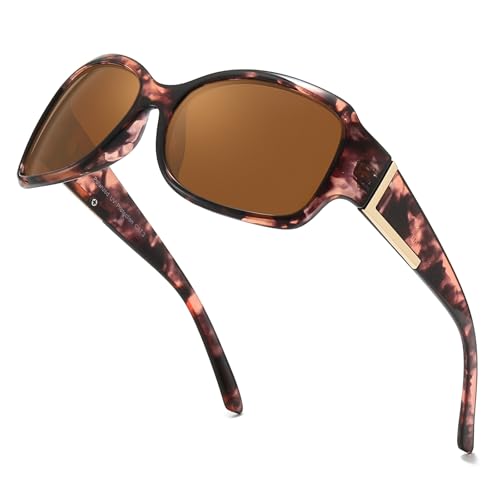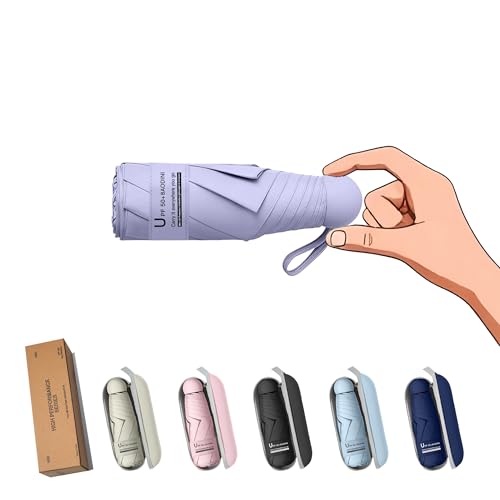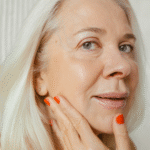Let me tell you something I wish someone had told me twenty years ago: that cute sun-kissed glow you loved in your twenties? Yeah, it’s now showing up as fine lines, dark spots, and texture that no amount of expensive serum can completely erase. But here’s the good news—it’s never too late to start protecting your skin, and the right sunscreen for mature skin can actually be your most powerful anti-aging tool.
If you’re a woman over 40, you’ve probably noticed your skin doesn’t bounce back quite like it used to. Maybe you’re seeing more pigmentation, or your skin feels thinner and more sensitive. Trust me, I get it. And that’s exactly why we need to talk about sun protection—not just any sunscreen, but the right sunscreen for our beautifully mature skin.

Why Sun Protection Becomes Even More Critical After 40
Here’s the thing: as we age, our skin loses collagen, becomes thinner, and our natural repair mechanisms slow down. Menopause and hormonal changes can make our skin more reactive and sun-sensitive. Those years of sun exposure are cumulative, which means the damage you got at 25 is still affecting your skin today. But, and this is important, daily sunscreen can actually help prevent further damage and give your skin a fighting chance to repair itself.
What SPF Level Is Best for Women Over 40?
Short answer? SPF 30 minimum, but SPF 50 is your sweet spot.
Here’s why: SPF 30 blocks about 97% of UVB rays, while SPF 50 blocks about 98%. That extra 1% might not sound like much, but for mature skin that’s already accumulated sun damage, every bit of protection counts. Plus, let’s be honest—most of us don’t apply enough sunscreen anyway (you need about a nickel-sized amount for your face), so starting with higher SPF gives you a buffer.
Pro tip: Don’t fall for the marketing hype of SPF 100+. Anything above SPF 50 offers minimal additional protection and can give you a false sense of security.
The Ingredient Checklist: What Mature Skin Needs in Sunscreen
When you’re shopping for the best sunscreen for women over 40, your ingredient list matters just as much as the SPF number. Here’s your cheat sheet:
Must-Have Protective Ingredients:
- Zinc Oxide (physical blocker that sits on skin’s surface)
- Titanium Dioxide (another gentle mineral option)
- Avobenzone or Mexoryl SX (if you’re going chemical)
Bonus Anti-Aging Ingredients to Look For:
- Niacinamide (reduces inflammation and pigmentation)
- Hyaluronic Acid (hydration is non-negotiable for mature skin)
- Antioxidants like Vitamin C or E (fight free radical damage)
- Ceramides (strengthen your skin barrier)
Ingredients to Avoid:
- Oxybenzone (hormone disruptor concerns)
- Octinoxate (can cause sensitivity)
- Alcohol (drying for already dry, aging skin)
| Factor | Mineral Sunscreen | Chemical Sunscreen |
|---|---|---|
| How It Works | Sits on surface, reflects UV rays | Absorbs into skin, converts UV to heat |
| Best For | Sensitive, reactive mature skin | Normal to oily mature skin |
| Texture | Can leave white cast | Usually more lightweight |
| Immediate Protection | Yes, works instantly | Needs 15-20 minutes to activate |
| Reef-Safe | Generally yes | Often no |
Mineral vs. Chemical: Which Is Safer for Aging Skin?
I’m team mineral sunscreen for mature skin, and here’s why: mineral formulas (zinc oxide and titanium dioxide) are less likely to irritate sensitive skin, they work immediately upon application, and they’re photostable—meaning they don’t break down in the sun.
That said, modern chemical sunscreens have come a long way. If you find mineral formulas too thick or chalky, newer chemical options with ingredients like Mexoryl SX offer excellent protection without irritation. The key is testing what works for your skin.
Top Dermatologist-Recommended Sunscreens for Mature Skin in 2025
After researching top dermatologist sunscreen recommendations 2025 and testing various formulas, here are my favorites:
For Sensitive or Acne-Prone Mature Skin:
This lightweight formula contains niacinamide and hyaluronic acid—perfect for calming redness while protecting against sun damage. It's also oil-free, so it won't clog pores.
For Dry, Thirsty Skin:
For Maximum Protection Without Greasiness:
This sun care for mature skin hero has a velvety finish that works beautifully under makeup. The high SPF gives you extra peace of mind.
For a Natural, No-White-Cast Option:
Finally, a zinc sunscreen that doesn't make you look like a ghost! Great for daily wear.
For Budget-Conscious Beauty:
Contains retinol SA and SPF 30. It's an affordable option that tackles multiple concerns.
How Often Should You Reapply? (Yes, Even Indoors)
Let’s address the elephant in the room: Is daily sunscreen necessary if mostly indoors?
Absolutely yes. UVA rays (the ones that age your skin) penetrate windows. If you’re sitting near a window at work or in your car, you’re getting sun exposure. Plus, blue light from screens may contribute to hyperpigmentation in darker skin tones.
Reapplication schedule:
- Every 2 hours if you’re outdoors
- After sweating or swimming
- Mid-day if you’re indoors with window exposure
- Before afternoon errands or dog walks
I keep a powder sunscreen at my desk for easy touch-ups over makeup—game changer!
The Great Debate: Moisturizer with SPF vs. Dedicated Sunscreen?
Here’s my honest take: SPF moisturizers for aging skin are convenient but shouldn’t be your only line of defense. Here’s why:
Most of us don’t apply enough moisturizer to get the stated SPF protection. You’d need about ¼ teaspoon for your face alone—that’s a lot of moisturizer! Instead, I recommend:
- Apply your regular moisturizer
- Follow with a dedicated broad-spectrum sunscreen
- Use an SPF moisturizer as a backup on lazy days (we all have them)
Don’t Forget These Often-Neglected Areas
Your face isn’t the only place showing age! Make sure your anti-aging SPF routine includes:
- Neck and décolletage (major giveaways of age)
- Hands (they see constant sun exposure)
- Ears (yes, really—skin cancer is common here)
- Scalp part line (wear a hat or use scalp SPF powder)
Think of these areas as your “age biography”—protect them now to keep your story looking young!
Beyond Sunscreen: Complete Sun Protection Strategy
Sunscreen is your foundation, but layering protection amplifies results. Here’s your complete arsenal:
Sun-Protective Clothing
Look for UPF-rated clothing. A UPF 50 shirt blocks 98% of UV rays—that’s better than most sunscreens! Sun protective clothing for women has become super stylish, so you’re not sacrificing fashion.
Sun Hats Matter
A wide-brimmed hat (at least 3 inches) provides shade for your face, neck, and shoulders. Look for sun hats UV protection rated UPF 50+. I live in mine during summer!
UV-Blocking Sunglasses
Protect the delicate eye area and prevent squinting (which causes crow’s feet). Look for 100% UV protection.
Seek Shade
Especially between 10 AM and 4 PM when UV rays are strongest.
How Prescription Treatments Change Your Sun Protection Needs
If you’re using prescription skin treatments like:
- Retinoids (tretinoin, adapalene)
- AHAs or BHAs
- Hydroquinone for pigmentation
Your skin becomes significantly more photosensitive. This means:
- You must wear SPF 50+ daily
- Reapply more frequently
- Consider wearing SPF even indoors
- Avoid direct sun exposure when possible
Always discuss sun protection with your dermatologist when starting any prescription skincare.
Can Sunscreen Actually Reverse Sun Damage?
Let’s be real: sunscreen is preventive, not magic. However, consistent daily use can:
- Prevent new age spots and pigmentation
- Allow your skin’s natural repair processes to work
- Reduce inflammation that accelerates aging
- Prevent existing sun damage from worsening
- Make other anti-aging treatments (like retinol) more effective
Studies show that regular sunscreen use for one year can improve skin texture and reduce pigmentation. That’s not reversing damage—that’s giving your skin the break it needs to heal itself.
The Truth About Tinted Sunscreens
Are tinted sunscreens more protective or just cosmetic? Both, actually!
Tinted sunscreens offer:
- Added protection against visible light (which can worsen pigmentation)
- Iron oxides that block blue light
- Light coverage that evens skin tone
- Better cosmetic elegance (no white cast)
They’re especially beneficial if you struggle with melasma or hyperpigmentation. Plus, they often eliminate the need for foundation—less is more as we age!
Your 3-Step Morning Sun Protection Routine
Keep it simple:
- Cleanse and treat (serums, prescriptions)
- Moisturize (wait 1-2 minutes to absorb)
- Apply SPF 50 sunscreen (wait 15 minutes before makeup if using chemical formula)
On makeup days, set with a powder SPF or use a spray sunscreen for afternoon touch-ups.
Quick-Reference Sun Protection Tips for Age Spots Prevention
Want to know how to prevent age spots with sunscreen? Follow these habits:
- Apply sunscreen every single day (yes, even cloudy days—80% of UV rays penetrate clouds)
- Use SPF 50 on high-exposure areas (face, hands, chest)
- Reapply when outdoors every 2 hours
- Combine with antioxidant serums (especially Vitamin C in the morning)
- Wear protective accessories (hats, sunglasses, UPF clothing)
- Get annual skin checks to catch any changes early
Special Considerations for Postmenopausal Skin
Hormonal changes during and after menopause affect your skin’s sun response. Estrogen decline means:
- Thinner, more fragile skin
- Increased sensitivity to UV damage
- Slower healing and repair
- More prone to pigmentation
This is why sunscreen for sensitive postmenopausal skin should be mineral-based, fragrance-free, and packed with hydrating ingredients. Look for formulas specifically mentioning “sensitive skin” or “suitable for reactive skin.”
The Bottom Line: Your Skin Deserves This
Listen, I know adding another step to your morning routine might feel like a chore. But here’s what I want you to remember: your skin has carried you through life, and now it’s asking for protection. Every time you smooth on that sunscreen, you’re making a choice—a choice to honor your skin, to slow down visible aging, and to invest in how you’ll look and feel in the years to come.
The best sunscreen for mature skin isn’t just about the highest SPF or fanciest ingredients. It’s about finding a formula you’ll actually use every single day. Because consistency beats perfection every time.
So whether you choose EltaMD, CeraVe, La Roche-Posay, or any other formula that works for you—just choose something and commit to it. Your future self will thank you.
Now go forth and glow (safely)!
Take Action Today
What’s your current sunscreen routine? Have you found a holy grail product that works for your mature skin? Drop a comment below and share your experience—we’d love to hear what’s working for you! And if you found this guide helpful, share it with a friend who could use some sun protection inspiration.
Remember: it’s never too late to start protecting your beautiful skin. ☀️
Affiliate Disclosure: This blog post contains affiliate links to products we genuinely recommend. If you purchase through these links, we may earn a small commission at no additional cost to you. These commissions help us continue creating valuable content to help you make informed skincare decisions. We only recommend products we believe in and that align with our commitment to providing trustworthy, expert advice. Your trust matters to us, and we’re grateful for your support. All opinions expressed are our own based on research and experience.













